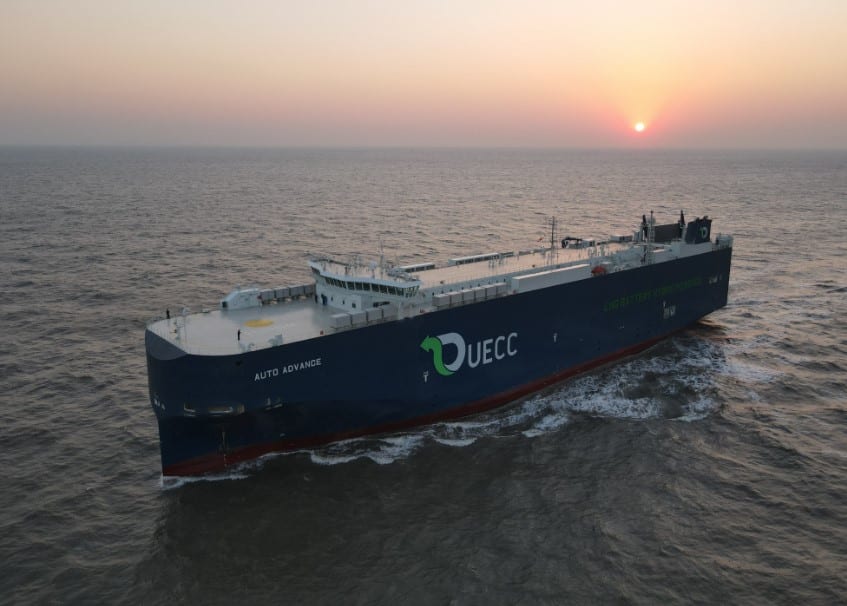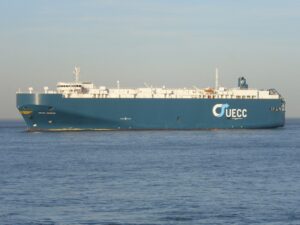UECC chooses Titan for major liquefied biomethane deliveries
UECC and Titan Collaborate on Major Liquefied Biomethane Operations in Zeebrugge

United European Car Carriers (UECC) and Titan Clean Fuels (Titan) are teaming up for significant liquefied biomethane (LBM) bunkering operations at the Port of Zeebrugge. This month, Titan will supply ISCC-EU certified mass-balanced LBM, also known as bio-LNG, to all of UECC’s LNG dual-fuel car carriers.
UECC’s Pure Car and Truck Carriers (PCTCs) will run entirely on LBM during their ‘Green Gas Month,’ a part of UECC’s broader ‘Sail for Change’ sustainability program. Three of these ships also have battery hybrid technology, boosting their environmental performance.
The use of LBM, derived from biomethane waste feedstock, offers significant greenhouse gas (GHG) emissions reduction. During ‘Green Gas Month,’ UECC expects Well-to-Wake emissions reductions to exceed 8,000 metric tonnes of CO2e.
KPI OceanConnect, Titan Clean Fuels, and SFL Collaborate on Milestone LNG Bunkering Operation
UECC customers can benefit from these emissions reductions through a CO2 registry established in January 2024. This registry allows transparent, traceable, and independently verified transfer of environmental benefits across UECC’s supply chain.
Daniel Gent, UECC’s Energy & Sustainability Manager, highlighted the importance of these initiatives: “By using biomethane, ‘Green Gas Month,’ and ‘Sail for Change,’ we are helping our customers advance their decarbonization strategies. With environmental regulations tightening and emissions levies increasing, using clean shipping services is becoming more commercially viable.”
Flip Dankelman, Titan’s Trader, expressed satisfaction with the collaboration: “We are pleased to work with UECC on these LBM bunkerings. The mass-balanced LBM via Fluxys’ LNG Terminal in Zeebrugge is a practical and cost-competitive clean marine fuel option.”

This collaboration is a crucial step towards achieving net-zero GHG emissions in shipping. LBM, with its mature infrastructure and scalability, provides a cleaner starting point. Future phases will introduce e-methane, produced using renewable electricity and electrolysis, further enhancing sustainability in maritime operations.
As the European Union’s FuelEU Maritime regulation is set to come into force on January 1, 2025, this clean fuel supply agreement is timely. The regulation will incentivize the use of renewable fuels of non-biological origin, impacting vessels over 5000 GT and emissions within and outside the EU.
